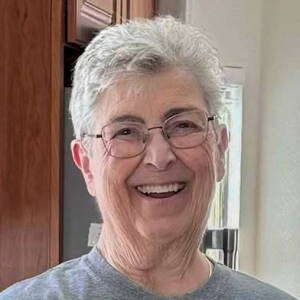A Story Worth Sharing
One day in August 1982, my best friend said she couldn’t help me anymore, that I needed to get professional help. I was 27 years old. So began my life-long journey through the maze and haze of living with mental illness and addiction.
After receiving my friend’s push, I was diagnosed with major depression and took three weeks medical leave from work. I always saw my parents before going home for the day but I was so ashamed that I dragged myself out of bed, dressed for work and visited them as I normally would. Looking back, it was a dreadful decision.
Two years after my initial diagnosis, I relocated thinking a change in job and geography would “fix” me. Initially, I enjoyed success as a middle school math teacher, HS coach and three-term union president. I was an alcoholic, a binge drinker. At the age of thirty, I stopped drinking alcohol cold turkey. I had been drinking heavily since I was a teen. I continued seeing a primary care doctor for my mental health medications. He over-prescribed Xanax and I suffered what was probably an inevitable overdose. I spent 30 days hospitalized for addiction recovery.
Throughout the next decade, my journey was not unlike others whose mental illness is misdiagnosed. After a revolving door of short- and long-term hospitalizations (more than 25) for treatment of major depression, borderline personality disorder and multiple personality disorder – none of which I had – and several suicide attempts, an excellent psychiatrist finally put the pieces together. It took almost fifteen years to receive the correct diagnosis. Bipolar I disorder.
There are laws now, that if followed, allow those with any disability, mental or physical, to stay in the workforce and in the jobs for which they are qualified and capable. At the age of 48, it wasn’t to be for me, as ignorance and stigma ended my career.
I have accomplished many things in my life, as a leader in education, athletics and politics. Generous in my philanthropy, I have endowed a scholarship at my alma mater. I practice random acts of kindness and consider my authentic self to be a decent person. But like many others who suffer from this dreadful disease, my relationships with family and friends deteriorated over the years. Few remain. After nearly 40 years after my first diagnosis, I see my therapist weekly and my psychiatrist once a month. Despite being medication compliant, I have many ups and downs and my mood can turn on a dime. I have several triggers which can send me into an angry rage. It's embarrassing and not something for which I'm proud. I try hard to be the person society wants me to be, but I am who I am.
There is no cure for bipolar disorder but there is life beyond a diagnosis. It is not a flaw in character nor something you (or anyone else) did to make you sick. If you have a loved one who needs or is getting help, the most important thing you can do for them is to simply be there; you can’t fix them but you can continue to love them. Mental illness affects people in every corner of the world.
Mayo Clinic: Bipolar I Disorder

Comments
Sign in or get an account to comment.


